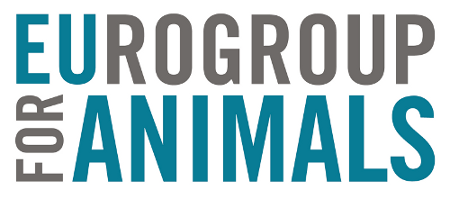Belgium, Brussels
Eurogroup for Animals is an animal rights federation composed of 70 NGOs, which was cofounded in 1980 by the UK-based Royal Society for the Protection of Birds and five other NGOs based in EU states. Located in Brussels, the Eurogroup’s secretariat focuses on influencing decisions made by the European Commission, Parliament and Council. Moreover, Eurogroup for Animals’ secretariat manages the Intergroup on the Welfare and Conservation of Animals, which brings together MEPs from all political groups.
One of Eurogroup for Animals’ core objectives is to reduce the extent of both the legal and illegal wildlife trade. At every CITES’ CoP, Eurogroup for Animals and the Intergroup on the Welfare and Conservation of Animals calls on the EU to, in its words, ‘apply the precautionary principle’ in all deliberations on working documents and in determining which proposed listings of species in CITES’ appendices to support. Deploying the precautionary principle at CITES’ CoP-17 in 2016, Eurogroup for Animals supported proposals to list all lions and elephants in appendix I, even though there was no case to be made based on the scientific evidence. In the absence of supporting scientific evidence, other than to show that the listings were not warranted, CoP-17 rejected both proposals, which was a rare but welcome victory for rational decision making at CITES.
In 2009, Eurogroup for Animals persuaded the EU to recognize animals in its legislation-making as ‘sentient beings’, something which had no impact on the existing highly regulated treatment of animals on farms and in abattoirs. Nevertheless, this reminder that some animals are sentient is something that, in the interests of animal welfare, morality and ethics, IWMC accepts is a good thing. But this group is also involved in an ongoing campaign to stop or find alternatives to all scientific research and laboratory-based testing methods that involve animals, which had it been acted on would have prevented the rapid development of the Covid vaccines. When it comes to fisheries, Eurogroup for Animals believes that fish are, in its words, ‘complex, social and emotional beings’, a claim that is far from being scientifically proven. Yet Eurogroup for Animals sees its goal as being to raise awareness of this unsubstantiated belief to ensure that ‘fish welfare remains high on the EU’s and the public’s agenda’.
Leaders
CEO Reineke Hameleers.
Governance
Eurogroup for Animals’ General Assembly of members elects a Board, whose President is currently Philip Lymbery, CEO of Compassion In World Farming.
Finance
According to its annual report, in 2018 its annual turnover was euro 2,371, 360 of which 67 percent of which went on salaries.


